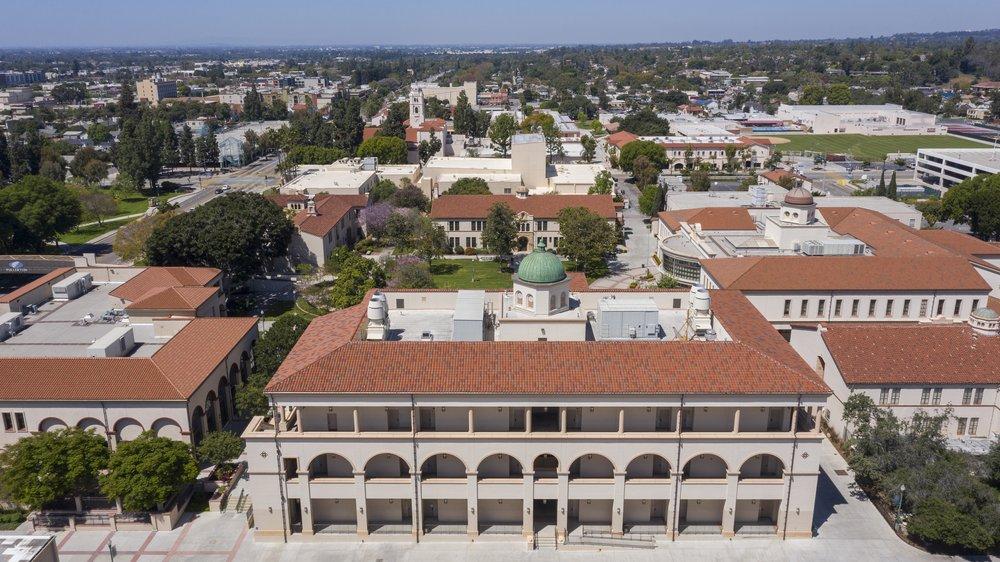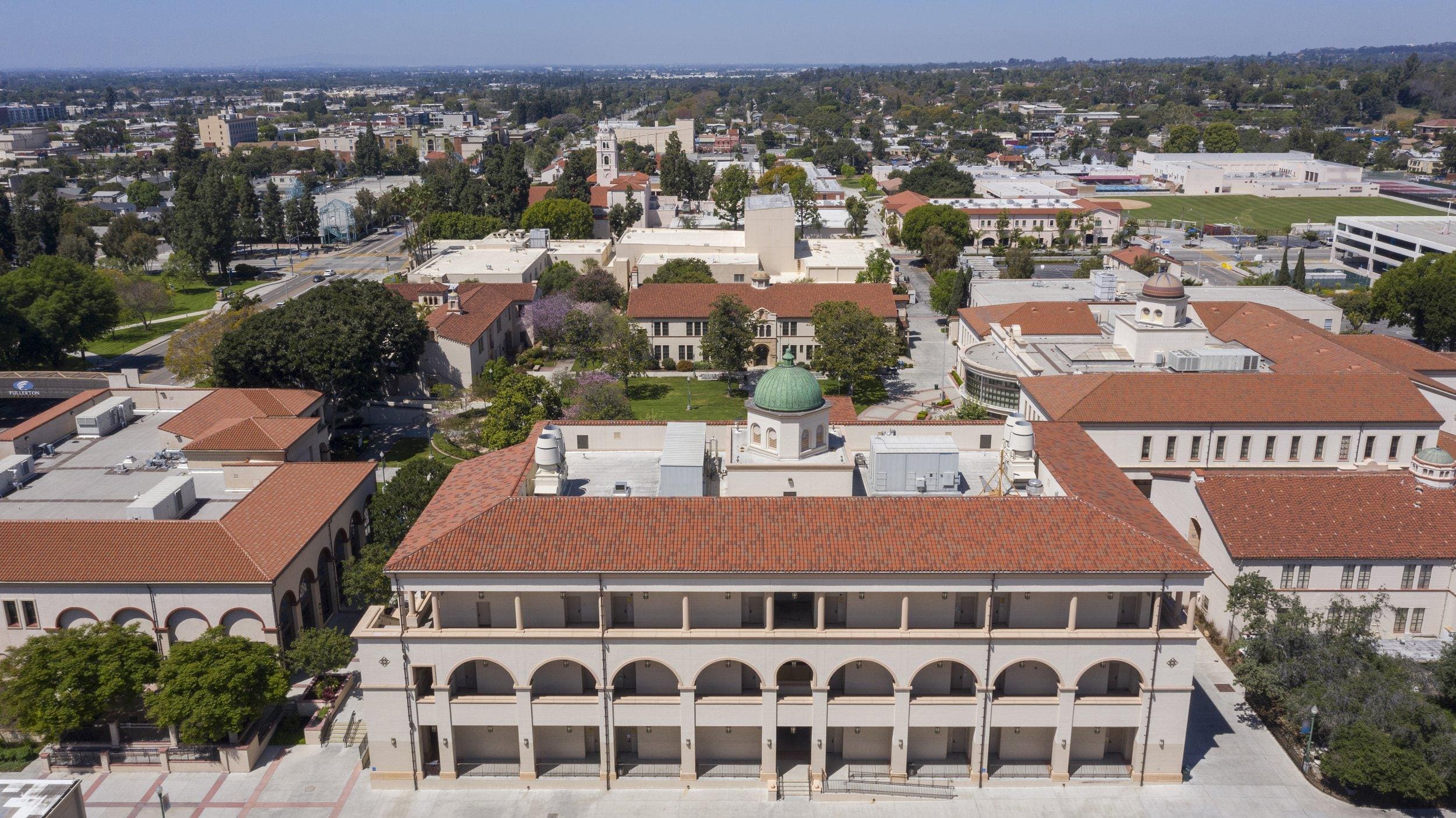Increasing open resources removes the burden of textbook costs from students. The Michelson 20MM Foundation is committed to increasing courses and faculty that use open educational resources.

Aerial view of a public community college in Downtown Fullerton, California.
LOS ANGELES— College students spend billions of dollars every year on textbooks. To remove that barrier to higher education, the Open Educational Resources initiative of the Michelson 20MM Foundation is committed to increasing courses and faculty that use open educational resources. Open educational resources, usually online, reside in the public domain or have been released under an intellectual property license that permits free use and repurposing.
After the OER Spark Grants Community Advisors reviewed the applications, the initiative awarded three Michelson Spark Grants that support the implementation of California’s historic $115 million investment in the Zero-Textbook-Cost program, protect student privacy and educate key individuals to become resources on licensing and copyright issues.
-
- The American Association of Colleges and Universities will support five California community colleges through their Institute on Open Educational Resources as they seek to meet the goals of the state’s Zero-Textbook-Cost degrees investment. To support and build capacity for the rollout of this funding, the institute will provide mentorship, training, and direct engagement over the course of a year to develop and implement OER plans.
-
- Creative Commons (CC) will host 15 California Community College educators, librarians, and course designers from across the Bay Area for a CC bootcamp, a week-long training on copyright, open licensing, and open practices. While many educators look for ways to reduce the costs of their material, they often lack clarity around open licenses and copyright permissions, which limit their efforts. CC Certification gives key individuals on campus the training needed to address areas of licensing confusion, and build readiness across the CCC system for the rollout of the state’s ZTC funds. With CC Certification, key individuals will become both advocates and resources for their campuses as they seek to limit barriers to OER adoption. This effort builds on previous investments Michelson 20MM has made to support ZTC programs in the Bay Area.
-
- SPARC will create resources to help the higher education community protect students’ data privacy. As digital courseware and textbooks expand, especially with inclusive and automatic textbook billing contracts, publishers are able to collect extensive amounts of student data. In the rapidly changing landscape of education technology, many higher education institutions lack the information necessary to ensure that student autonomy and data privacy are upheld. SPARC supports systems for research and education that are open and equitable. The organization, which is an independent project of the New Venture Fund, has a membership that includes more than 200 libraries and academic organizations across North America and works for everyone to be able to “access and contribute to the knowledge that shapes our world.”
“Last year’s historic investment in open education by the state of California has the potential to transform the course material landscape — saving students money and removing barriers to access,” said Michelson 20MM Program Manager Cailyn Nagle. “We are proud to support the work of these organizations as they build capacity for the adoption of OER while creating a more equitable future for higher education.”
Michelson 20MM is a private, nonprofit foundation seeking to accelerate progress towards a more just world through grantmaking, operating programs, and impact investing. Co-chaired and funded by Alya and Gary Michelson, Michelson 20MM is part of the Michelson Philanthropies network of foundations.

